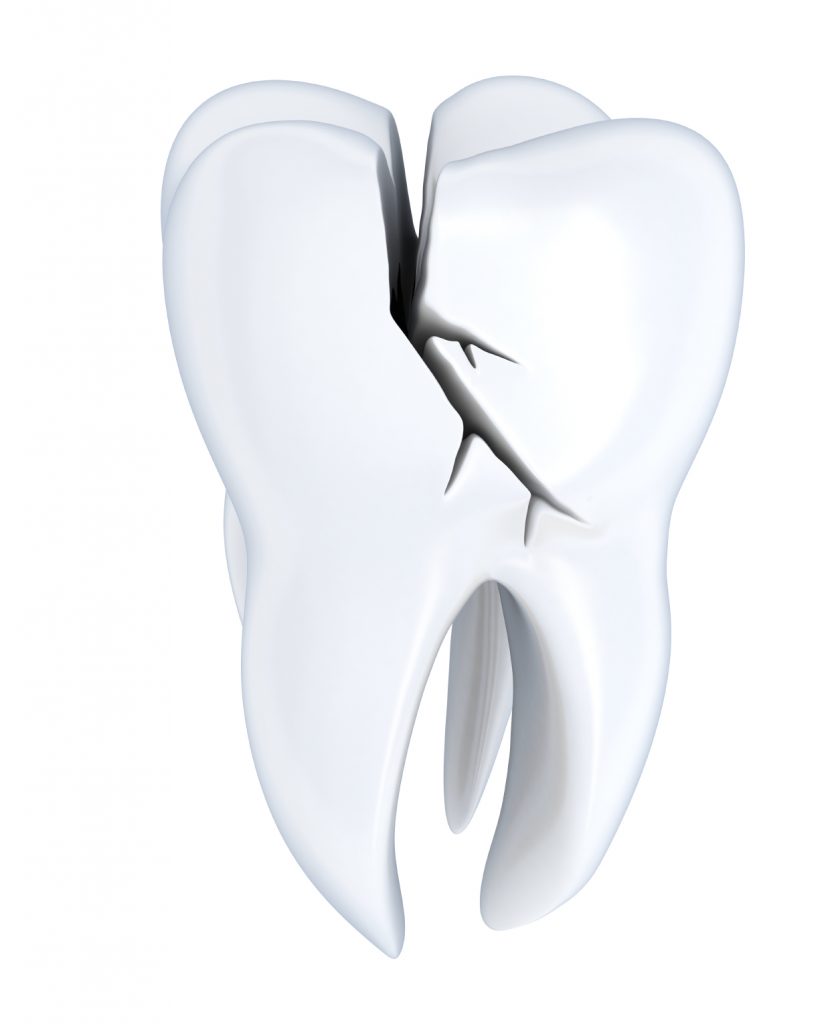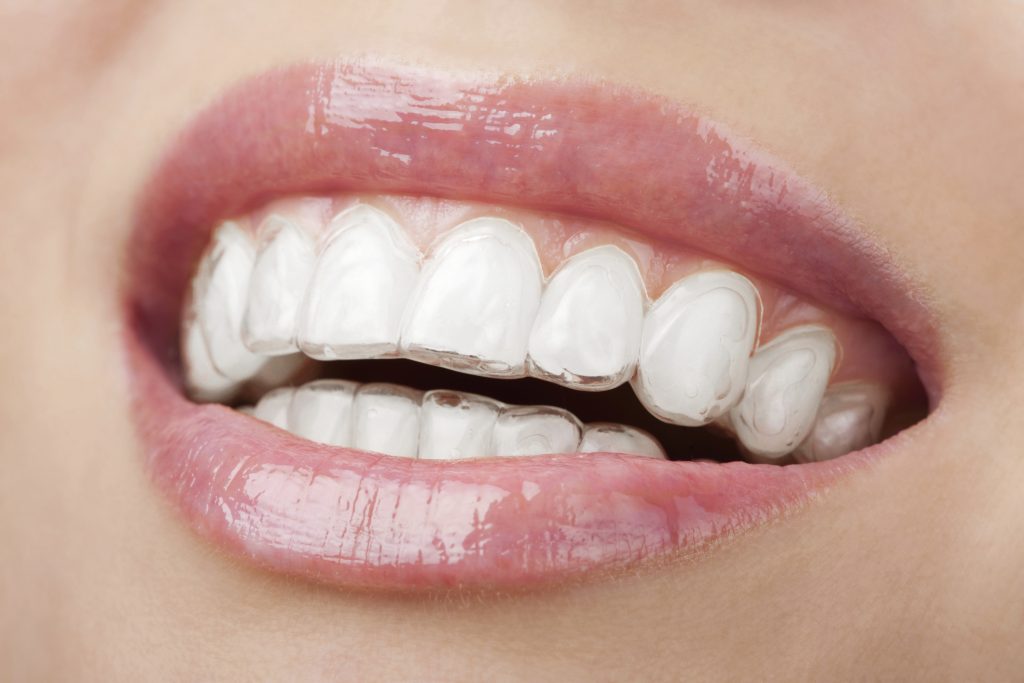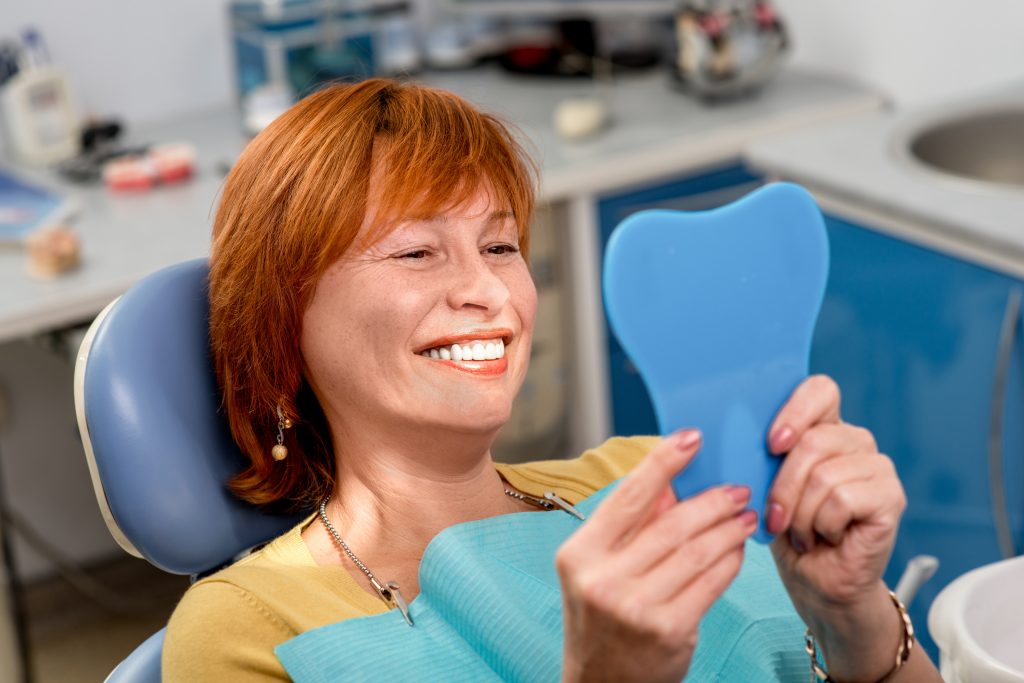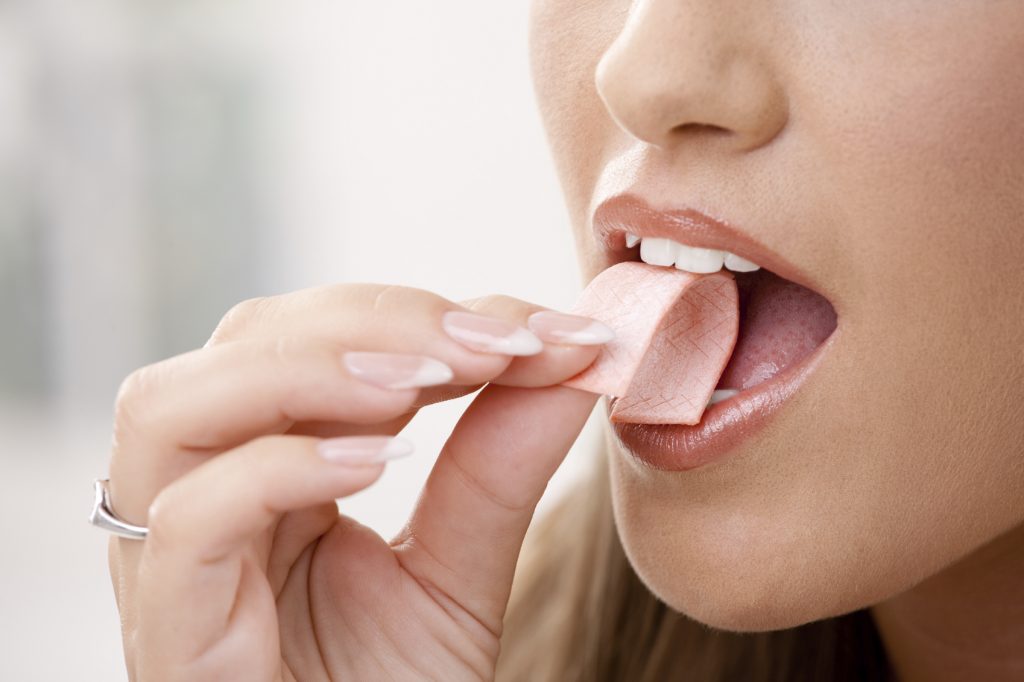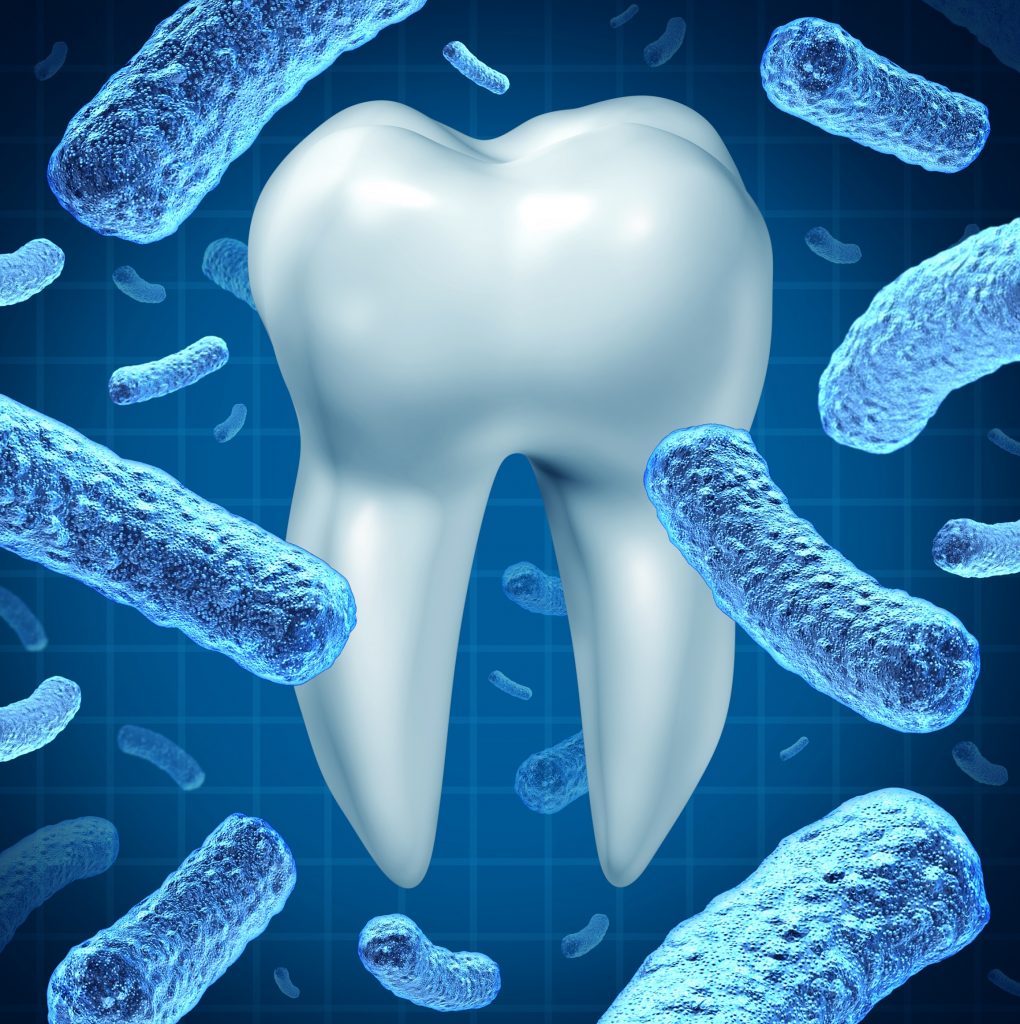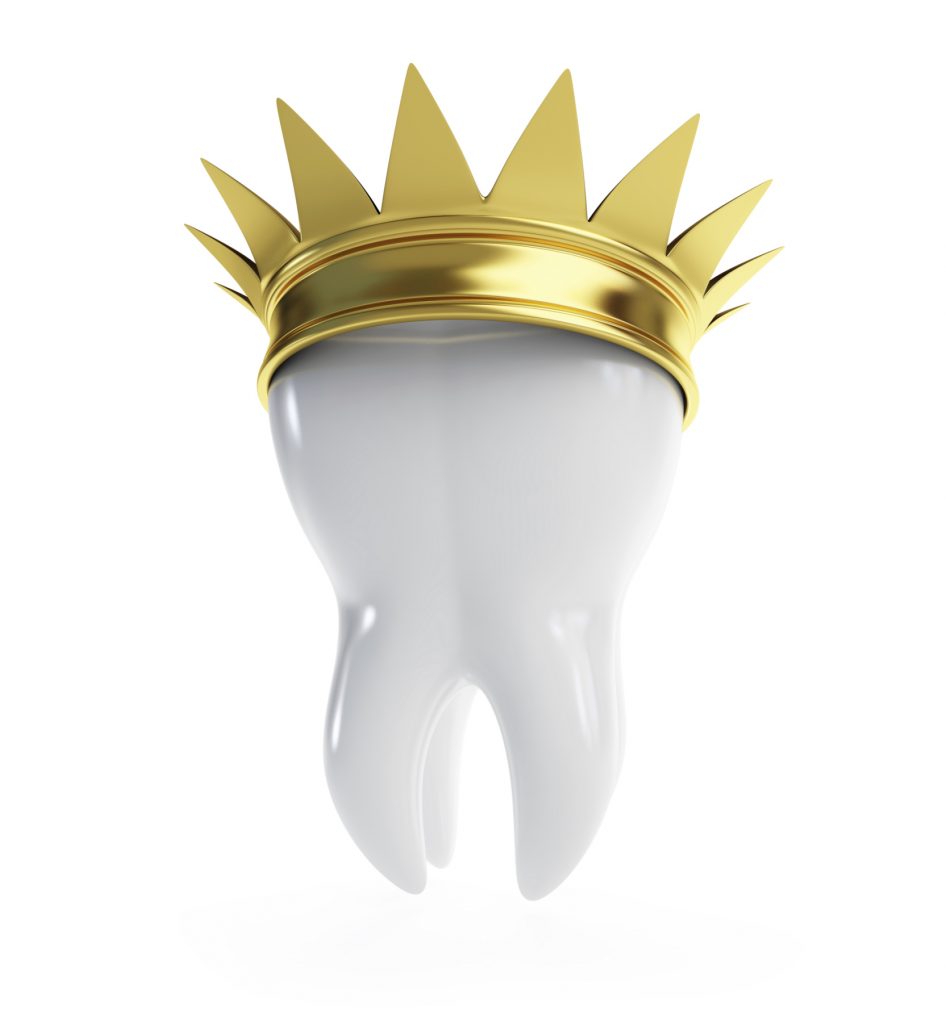
If your tooth is in danger of breaking a dental crown procedure may be the right solution for you. A breaking or damaged tooth indicates that there is a significant amount of decay that causes the tooth to become frail. In order to restore your tooth to its natural strength, a dental crown will be used to improve the longevity and durability of your tooth, as well as any discoloration. This dental crown will not only improve your oral health but give you a confident and radiant smile. Below are just a few of the benefits:
- Undergoing a cosmetic dental crown procedure can improve the look of broken or cracked teeth. If you are suffering from a loss of teeth, dental crowns are the solution to replace any missing teeth.
- Dental crowns look extremely natural because the porcelain and composite resin crowns match the exact shade of your natural teeth. With dental crowns, you will not be able to tell the difference from your crowns and natural teeth.
- Dental crowns are stain resistant. This is because dental crowns are made from porcelain, a material that is not prone to discoloration.
- With durable materials used for your dental crowns, dental crowns can last up to 15 years. With dental crowns, patients can go about their daily routines without constantly worrying about their dental crowns falling out of place.
- Dental crowns are restorative and preventive measures that improve missing or damaged teeth. Dental crowns also drastically decrease the amount of bacteria build-up that can lead to the loss of more teeth.
If you are embarrassed of your missing or damaged teeth, dental crowns are the perfect solution to build your confidence. It may be time to make that dental appointment…
If you would like to find out more about dental crowns, contact Dr. Ahmadi at 323-312-0500 to schedule a consultation or visit www.dentalimplantcare.com for additional information.
Dr. Mike Ahmadi proudly serves Bell and all surrounding areas.

